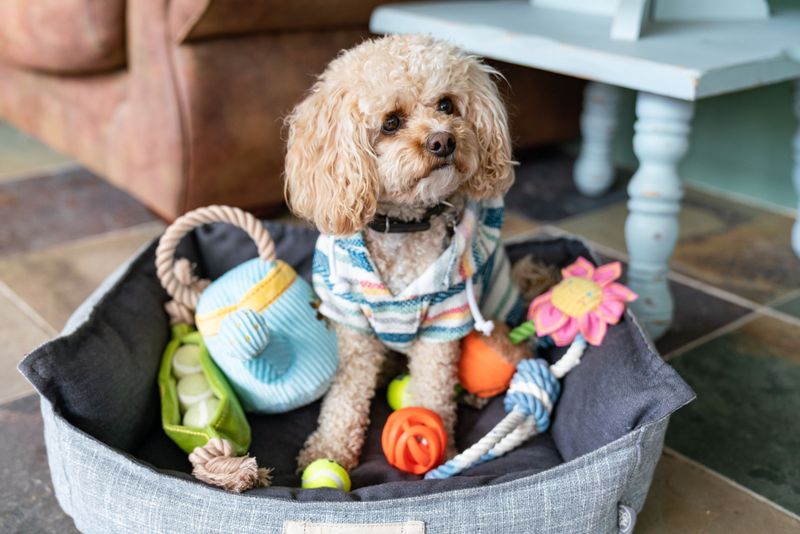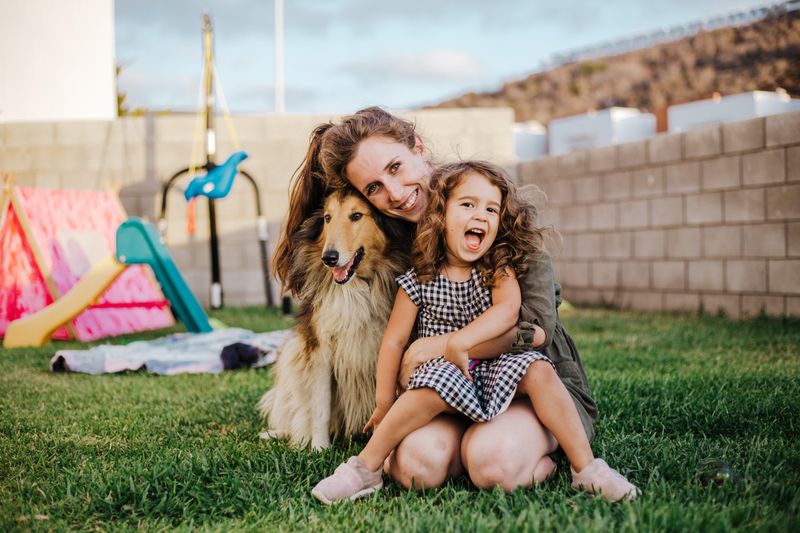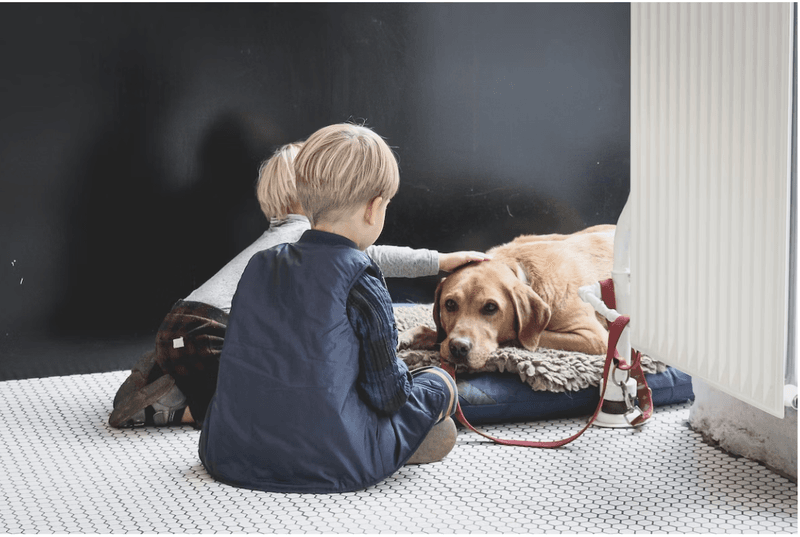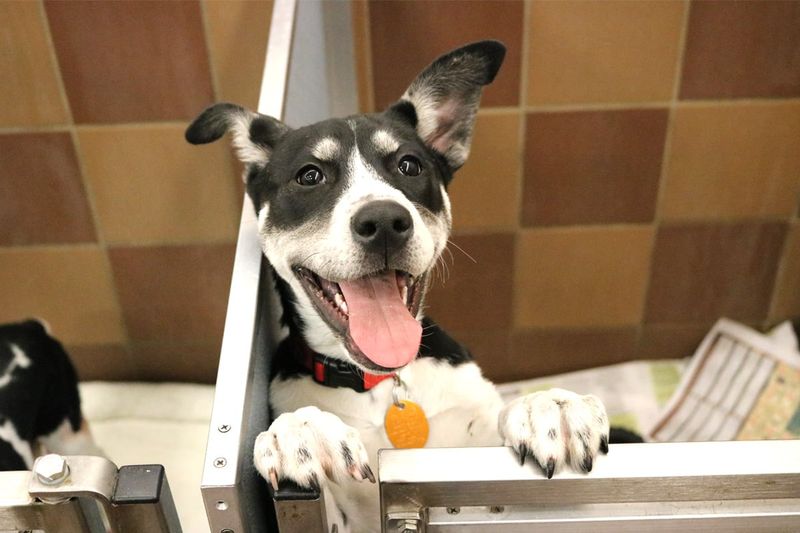Choosing a dog isn’t just about picking the cutest puppy in the litter. It’s about finding a companion that fits your lifestyle, energy level, and personality. The wrong match can lead to frustration—for both you and the dog.
Some breeds are born couch potatoes, while others need a daily marathon to stay sane. Some thrive in apartments, while others turn small spaces into disaster zones. And don’t even get started on grooming—unless you’re ready to vacuum twice a day, a fluffy breed might not be for you.
Bringing a dog into your life is a long-term commitment, so doing your homework is essential. The right choice can mean years of love, loyalty, and unforgettable adventures.
Before you fall for those puppy-dog eyes, take a deep breath. These 16 tips will help you find a breed that truly matches your lifestyle—saving you from surprises (and shredded furniture) down the road.
Assess Your Lifestyle

Finding the right dog starts with understanding your lifestyle. Are you active or more relaxed? Consider how a dog fits into your daily routine. If you’re energetic, a breed requiring lots of exercise might suit you. Conversely, a calmer breed may be better for someone who enjoys quiet evenings. Reflect on your living situation, too. Do you have a spacious yard or a cozy apartment? These factors will help you determine the breed that aligns best with your life. Make a list of your lifestyle habits and see which breeds naturally align with them.
Consider Size and Space

Size matters when choosing a dog. Large breeds may need more room to roam, while smaller dogs can thrive in compact spaces. If you’re living in a city apartment, a smaller breed like a Chihuahua might be ideal. On the other hand, if you have a large yard, breeds like Labradors or Golden Retrievers could be a good fit. Think about your space and how a dog’s size will fit into it. Evaluating your living environment and matching it with a suitable breed ensures both you and your new pet are comfortable.
Evaluate Energy Levels

Each breed has unique energy levels. Active individuals may prefer breeds like Border Collies, known for their stamina. If you enjoy jogging or hiking, these dogs can be great companions. For a more relaxed lifestyle, consider breeds like Bulldogs or Basset Hounds. They enjoy leisurely strolls and lounging. Match a dog’s energy level to yours for a happy and healthy relationship. Researching the typical activity needs of breeds will guide you in selecting a dog whose energy aligns with your own, ensuring you’re both satisfied with your daily activities.
Research Temperament

Understanding a breed’s temperament is crucial. Some dogs like Beagles are friendly and sociable, making them great for families. Others, like Shiba Inus, may be more independent. Consider if you want an outgoing dog or one that’s more reserved. Temperament affects how a dog interacts with people and other animals. Research breeds known for their temperaments that match your family dynamics. A calm dog may suit a household with young kids, while an independent breed might be better for singles. Knowing what temperament fits your life helps ensure harmonious living.
Grooming Needs

Grooming is a vital aspect of dog care. Some breeds, like Poodles, require regular grooming, which can be time-consuming and costly. Conversely, breeds such as Dachshunds need minimal grooming. Think about how much time and money you’re willing to spend on grooming. Regular grooming not only keeps your dog looking good but also promotes health. Consider allergies too; some breeds are hypoallergenic. Understanding grooming needs helps you prepare for the time commitment and financial investment required, ensuring your dog is well-cared for and fits your lifestyle.
Health Considerations

Health is a key factor when choosing a breed. Some breeds are prone to specific health issues. For instance, Bulldogs often face respiratory challenges, while Dachshunds can have back problems. Researching these potential concerns helps you prepare for future medical needs. Consider your ability to handle these health challenges, both financially and emotionally. Choosing a breed with common health problems may require extra veterinary visits and care. Understanding what your chosen breed might face health-wise ensures you’re ready to provide the necessary care and support, fostering a healthy partnership.
Training Requirements

Training is essential for a well-behaved dog. Different breeds have varying trainability levels. Breeds like Border Collies are highly intelligent and quick learners, while others like Afghan Hounds can be more challenging. Assess your patience and experience with training. Are you willing to invest the time needed? Some breeds require consistent training efforts, while others may need less. Consider professional training classes if you’re unsure. Understanding the training requirements of your chosen breed will help you prepare for the commitment, ensuring your dog becomes a well-mannered family member.
Age and Lifespan

Consider the age and lifespan of the breed. Puppies require more time and training, while adult dogs may already have some training. Senior dogs might have health issues but can be loving companions. Lifespan varies; small breeds often live longer than large ones. Think about the commitment needed for each life stage. Are you ready for the demands of a puppy or the calm of an older dog? Evaluating age and lifespan helps you prepare for the different phases of a dog’s life, ensuring you make a choice that suits your long-term plans.
Cost of Ownership

Owning a dog comes with financial responsibilities. Different breeds have varying costs. Larger dogs often eat more, leading to higher food bills. Breeds with specific grooming needs may require professional services. Veterinary costs can also vary. Consider your budget and how much you’re willing to spend. Research the average cost of owning your chosen breed. This helps you plan financially and avoid surprises. Understanding the financial commitment ensures you’re ready to provide for your dog’s needs, contributing to a stable and happy relationship without unexpected financial strain.
Allergies and Sensitivities

Allergies can affect dog ownership. Some breeds are hypoallergenic, producing fewer allergens. Breeds like Poodles or Schnauzers may be suitable for allergy sufferers. Consider any allergies in your household. If allergies are a concern, research breeds that are less likely to trigger reactions. Spend time with the breed before deciding, ensuring compatibility. Understanding allergies and sensitivities helps you choose a breed that won’t cause health issues for you or your family. This consideration is vital for a comfortable and enjoyable pet-owner relationship, ensuring both you and your dog are content.
Breed-Specific Legislation

Certain regions have breed-specific legislation that restricts ownership of some breeds. Research local laws to ensure your desired breed is allowed in your area. Some breeds, like Pit Bulls, may face restrictions. Understanding these laws helps you avoid legal issues and ensures a smooth adoption process. Check with local authorities or shelters for guidance. Being informed about legislation ensures you choose a breed that aligns with local regulations, preventing future complications. Awareness of breed-specific laws is crucial for responsible pet ownership, contributing to a harmonious community and pet-owner relationship.
Family Dynamics

Family dynamics play a significant role in selecting a dog. Consider how a dog will fit into your family. Do you have young children, or are you living with seniors? Some breeds are excellent with kids, while others may not be as tolerant. Evaluate how a dog’s temperament aligns with your family’s needs. Involve family members in the decision-making process to ensure everyone’s comfort and safety. Understanding family dynamics helps in choosing a breed that enhances family life, fostering a loving and interactive environment for everyone, including your new furry friend.
Purpose and Function

Consider the purpose or function you want your dog to serve. Are you looking for a companion, a working dog, or a guard dog? Breeds are often bred for specific roles. A Border Collie might excel in herding, while a Pug is better suited for companionship. Understanding the purpose helps align your needs with the breed’s natural abilities. Researching breed functions ensures you select a dog that thrives in its role. This alignment leads to a more fulfilling relationship, as the dog can effectively perform its intended role, bringing satisfaction to both of you.
Time Commitment

Dogs require time and attention. Consider how much time you’re willing to dedicate. Active breeds need more exercise and playtime, while others may require less. Assess your schedule and see if it allows for a dog. Can you commit to daily walks, feeding, and play? Understanding the time commitment ensures you’re ready for the responsibility. Acknowledging your availability helps in choosing a breed that matches your lifestyle, ensuring your dog receives the care and attention it deserves, leading to a healthier and happier partnership.
Adoption vs. Breeder

Decide whether to adopt from a shelter or buy from a breeder. Adoption saves lives and often costs less, offering a variety of breeds. Shelters can provide insight into a dog’s behavior. Breeders offer purebred dogs with known lineages. Research reputable breeders to avoid puppy mills. Both options have pros and cons, so consider your preferences. Understanding the differences helps you make an informed decision that aligns with your values and goals. Whether adopting or buying, ensure the choice supports responsible pet ownership, contributing to a positive and ethical pet-owning experience.
Consider Future Changes

Think about future changes that might affect your ability to care for a dog. Are you planning to move, have children, or change jobs? These factors can impact your choice of breed. Consider a breed’s adaptability to change. Some dogs handle transitions better than others. Planning for the future ensures long-term compatibility with your dog. Evaluate potential changes and how they may influence your pet ownership journey. Understanding future dynamics helps in choosing a breed that remains a suitable companion, ensuring a lasting and fulfilling relationship regardless of life changes.

